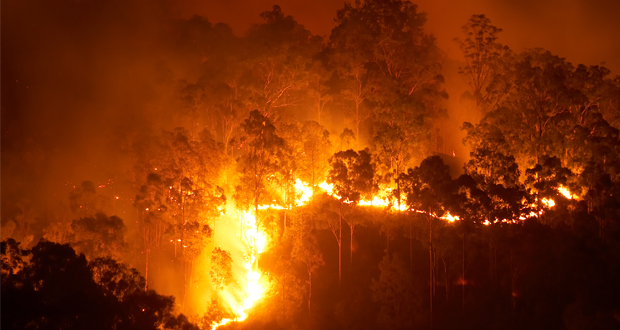It is noteworthy how far we have come in defining and shaping a concept of engagement. Universities in Australia are helping to build the future, in partnership with others across the globe also, as part of a new economic and social order.
The scope of issues and themes they are dealing with is literally breath-taking. From the intellectual issues of a post-truth world to cities and communities of the future Australia, and from action strategies for economic development to the meaning of civic life – there are insightful and hopefully controversial and stimulating debates and ideas put before those involved in university engagement … and the general public.
Ideas tested in healthy and open debate and put into the public domain are the lifeblood of democratic engagement. Engagement Australia (EA) has been immersed in this culture of debate and challenge.
So far so good. We have an array of vital issues before us, each one of which is significant in itself. The contributions selected for discussion will help us to think through difficult challenges and reach decisions in our ‘heimat’ – our own place and locality and culture where it will be meaningful, or not!
This is exactly the point in having debates and is why the Australian government’s recent intervention to assure freedom of speech in our universities is timely.
We should test the limits of understanding and get new illuminations from arguing the case, defending our beliefs and meeting the strongest arguments of our opponents. It is vital that we do not all agree, whilst providing the open platform for knowledge creation and exchange that ‘engagement’ demands.
This is EA’s unique role – providing a process for dialogue and discourse for those whose concerns lie in the burgeoning field of university engagement with government(s), industry and community.
And it is pleasing to see that EA has come of age this year – representing the vast majority of Australian universities (across all interest groups) EA’s membership is now the largest in its 18-year history, which speaks volumes to the strategic priorities of our current Higher education leaders.
The process of dialogue and discourse is clearly vital to advancing the university engagement agenda. However, in looking at the array of matters we are debating it is clear that we are immersed in processes and experiences in the here and now which we only partially understand and recognise.
Yet there is a transformation taking place right now and we are part of it. Such transformations can take place below the horizon of awareness. It is possible to be unaware of the meaning and significance of what is right before our eyes.
Yet there is one theme which we surely can no longer ignore. It is the one that asserts that the planet itself is in dire circumstances and its future existence as our home and heimat is now threatened. If we continue to destroy our natural environment and to pollute our seas, rivers, landscapes and forests we shall destroy our very means of existence. If we continue to lower our horizon of knowledge and awareness we shall reap the harvest of self-destruction.
There is a great transformation to come, and our journal discussions, research and publications within the Engagement Australia ‘family’ are an indicator of its presence and of an emerging reality which is now a pressing force which will not be denied.
This transformation is already underway and it is evolving under the pressure of and in response to perhaps six key themes dealt with below, each of which is an aspect of a single and unifying concept – that of sustainability.
Averting the disaster
There are many things to be done to avert the impending disaster and many of these must necessarily be done by those in government and industry. However, there are things we can do to change awareness and consciousness, bearing in mind that our context of engagement brings its own specific challenges.
First, we must visualise change and for this we must recognise that a change of values and behaviour must evolve. Even where values are held to be ‘unchangeable’ and universal they must be challenged.
Equity, autonomy and self-determination as well as the distinctly Aussie values of ‘have a go’ and a ‘fair go’ would serve us well as the keynote for a sustainable world – a world which is now globalised and interdependent economically.
Second, we must acknowledge the sustainable goals for the ‘wicked issues.’ Poverty reduction, hunger amelioration, equal health chances, decent work, responsible consumption, climate change action, sustainable cities and social justice are all listed as part of the Sustainable Development Goals (SDGs) by the United Nations.
This is a world issue of which we are a part, right here and now and right here in your home town. This is a ‘heimat’ issue for each community and neighbourhood across the globe. Noone can afford to ignore the challenge because it is quite simply coming your way.
Third, we need a new social contract which is not rooted in the fundamental idea of a self-regulating market which may only have needed trade deals between the great global economies to be effective.
The old idea that somehow markets could be dis-embedded from the old institutions of a society and operate independently must be challenged. That the growth of the world economy has left behind vast areas and many, many millions of people is the great challenge of economic sustainability. Education is the third largest generator of GDP in Australia and has a vital economic role to play and we do well to ask of it: ‘How will you help the new social contract to succeed?’
Fourth, the new social contract requires a social debate in which we can address the structural issues of economic change and regeneration, the issues of climate change and carbon emissions, the impact of global migrations in response to environmental degradation, global warming, sea-level changes and the need to equalise power.
Voluntarism, the role of ‘third sector’ economic actors, collaborative partnership models and a ‘responsible capitalism’, accountable for its depredations and environmental destructions, is envisaged. The social debate will require new ways of seeing and new ways of conceptualising the problems we face. We shall need to have critical thinking embedded in our curricula and a new approach to learning for adaptability and survival in a changing and threatening world.
Fifth, we need to acknowledge that place will continue to play a vital role in our future even though we shall be interconnected globally.
Care for the land and for our cultural landscapes should be central to our concerns and be as much the focus for investment and social innovation as the metropolitan centres.
Sixth, the great transformation underway beneath our feet is also and simultaneously a technological and digital revolution. Knowledge has exploded into availability and the knowledge industry seems to be part of everyone’s future. We have yet to fully understand the implications and consequences of this and the jury is out on whether we are to be ‘liberated’ or ‘imprisoned’ in our digitalised futures.
What is clear though is that we are unlikely to succeed in engagement without having a new conception of how knowledge is organised and owned and controlled. For this we need new approaches to the curriculum which are open and critical; we need to be active subjects in this and not merely the objectives and consumers of a technology and content made somewhere else.
Can we seize back the debate?
At this increasingly late stage in the climate debate and facing a world that burns, there is undeniably a question of urgency and the need for reform and change. If we are, as many believe, entering the ‘Anthropocene age,’ highlighted by an irreversible and destructive degradation of our planetary resources (including our human environments) then surely this is an agenda beyond all others for university engagement?
Given our universities are the best repositories of knowledge and critique, it may be timely to ask the question
‘Can we seize back the debate by recovering the learning spirit and critical thinking many associate with our universities?’
We all live in a place; we all seek a heimat where our cultural identity is tied in to our ecological identity; these things we value must be fought for and defended if we are to have a future. Nothing could or should be more engaging.
This is an edited version of an article that will appear in the Feb 2020 edition of Engagement Australia's Transform journal.
 Professor Jim Nyland is the Associate Vice Chancellor (Queensland) at the Australian Catholic University and chair of Engagement Australia.
Professor Jim Nyland is the Associate Vice Chancellor (Queensland) at the Australian Catholic University and chair of Engagement Australia.
Do you have an idea for a story?
Email [email protected]
 Campus Review The latest in higher education news
Campus Review The latest in higher education news


Universities have a central role to play in understanding sustainability. Indeed, I invite Australian politicians to engage meaningfully with the question of sustainability – https://www.youtube.com/watch?v=ZjeDPcxaKY4
The impending disaster is to science itself. The IPCC puts the radiative forcing effect of doubling atmospheric CO2 at 3.7 watts per square metre, the equivalent of a rise of 0.8 C. You have to double it again to get 1.6 degrees, since the effect is logarithmic. It has nothing to do with ‘a reflecting layer’ but is caused by the colouring of the atmosphere to block a narrow band of infra-red radiation around fifteen microns. Google “Earth radiation spectrum” to see an image.
The climate has failed to obey Al Gore and temperatures continue to rise at just one degree per century, seas by one foot per century.
The catastrophe will come when, like the millennium bug, Armageddon does not materialise and there is public realisation of the deception by a failed would-be president and the Union of Concerned Scientists. From the intemperate wording, I have a suspicion that the author of this article is a member of UCUSA.
“Sustainability” is a vaguely defined buzzword that comes loaded with assumptions.
Sustainable over what time frame? Subject to what assumptions about science/technology/resources? Technologies or activities promoted as sustainable may rely on incorrect assumptions, and policy aimed at promoting “sustainable” practice may have sharply negative consequences –for example, using food crops for fuel and increasing food prices.